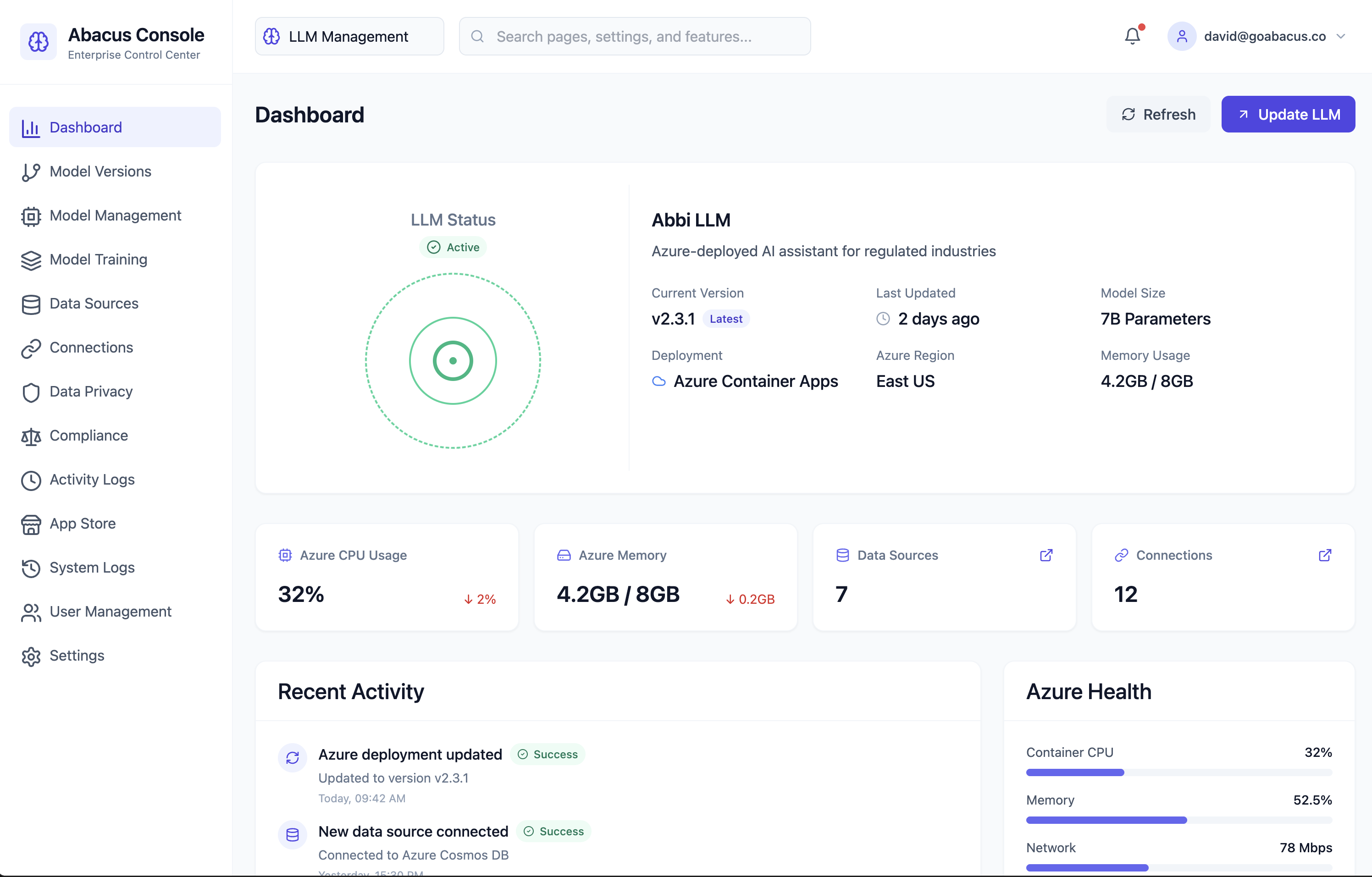Abacus.AI | AbacusAI - Enterprise AI Platform for Banks and Financial Services

Abacus.AI (also known as AbacusAI or abacusai) is the leading enterprise AI platform built for banks, credit unions, and financial institutions. Whether you search for Abacus.AI, abicus.ai, or abucus, you'll find the same secure, compliant AI with SOC 2 Type II, FINRA, and HIPAA compliance.
Why Abacus.AI? Our Chinese Abacus Heritage
AbacusAI is named after the Chinese abacus (suanpan), one of humanity's most significant computational innovations. For over 2,000 years, the Chinese abacus served as the primary calculating tool across Asia, enabling merchants, scholars, and administrators to perform complex calculations with remarkable speed and accuracy. Like the traditional Chinese abacus that delivered accurate calculations in the hands of skilled operators, the Abacus.AI platform provides precise, reliable AI responses validated by rigorous compliance frameworks for regulated industries. The Chinese abacus represents principles that guide our abacusai platform: intuitive operation, verifiable results, and universal accessibility.